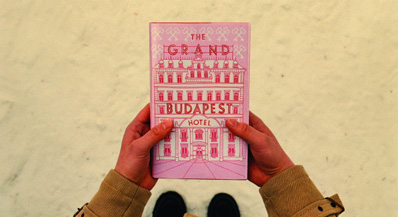|
|
2015 Calvin Awards: Best ScreenplayBy Reagen SulewskiFebruary 13, 2015
As a group of scribes, obviously we here at BOP prioritize the written word. However, when it comes to screenplays, it's much more than just dialogue that makes them work. For our list of top screenplays in the last year of film, many excelled because of that dialogue, but others were champions of plot, setting, theme and/or character. While there's a heavy overlap between this list and our Best Picture group – how could there not be? – several films jump around in order based on our preference for that element of the film.
The highly complex puzzle box of a script for Interstellar finishes fifth in our balloting. Christopher and Jonathan Nolan deftly navigated the complex time travel of their sci-fi film, while giving us fantastic characters at its center to make us care about their fate. While we might have done without one sidetrack that didn't entirely help the film, it's probably quibbling given the end result. Sixth spot goes to Selma, which excelled in telling the many personal stories of the civil rights movement, as well as getting to the heart of an important moment in U.S. history. Another complex sci-fi film finds its way to this list, with Edge of Tomorrow hitting seventh thanks to its Groundhog Day-meets-Alien premise, and its endlessly clever iterations on the premise. Our sole top 10 screenplay that didn't make our top 10 picture list is Nightcrawler, which lands in eighth. The razor-sharp media satire and portrait of a dangerous adrenaline-junkie and fame seeker brought to mind the likes of Network. Boyhood's monumental effort of a screenplay hits in ninth spot, on the strength of telling a coherent coming-of-age story over 12 years of real time – while its episodic nature means the film like a real narrative drive, the overall story of the film tells an enormously compelling tale. Lastly, the endlessly earnest and hilarious script for The LEGO Movie rounds out our top 10 screenplay list, taking what could have been a D.O.A. premise into a clever meditation on the nature of childhood and imagination. While we expected comedy, we didn't expect a genuinely thought-provoking debate on what makes a toy. 2015 Calvin Awards Calvins Intro Best Actor Best Actress Best Album Best Cast Best Character Best Director Best Overlooked Film Best Picture Best Scene Best Screenplay Best Supporting Actor Best Supporting Actress Best TV Show Best Use of Music Breakthrough Performance Worst Performance Worst Picture See our 2014 Awards See our 2013 Awards See our 2012 Awards See our 2011 Awards See our 2010 Awards See our 2009 Awards See our 2008 Awards See our 2007 Awards See our 2006 Awards See our 2005 Awards See our 2004 Awards See our 2003 Awards See our 2002 Awards
[ 2015 Calvin Awards ]
[ View other BOP Lists ]
[ View columns by Reagen Sulewski ] [ Email this column ]
|
||||||||||||||||||||||||||||||||||||||||||||||||

|
|
|

|
Thursday, October 31, 2024
© 2024 Box Office Prophets, a division of One Of Us, Inc.


